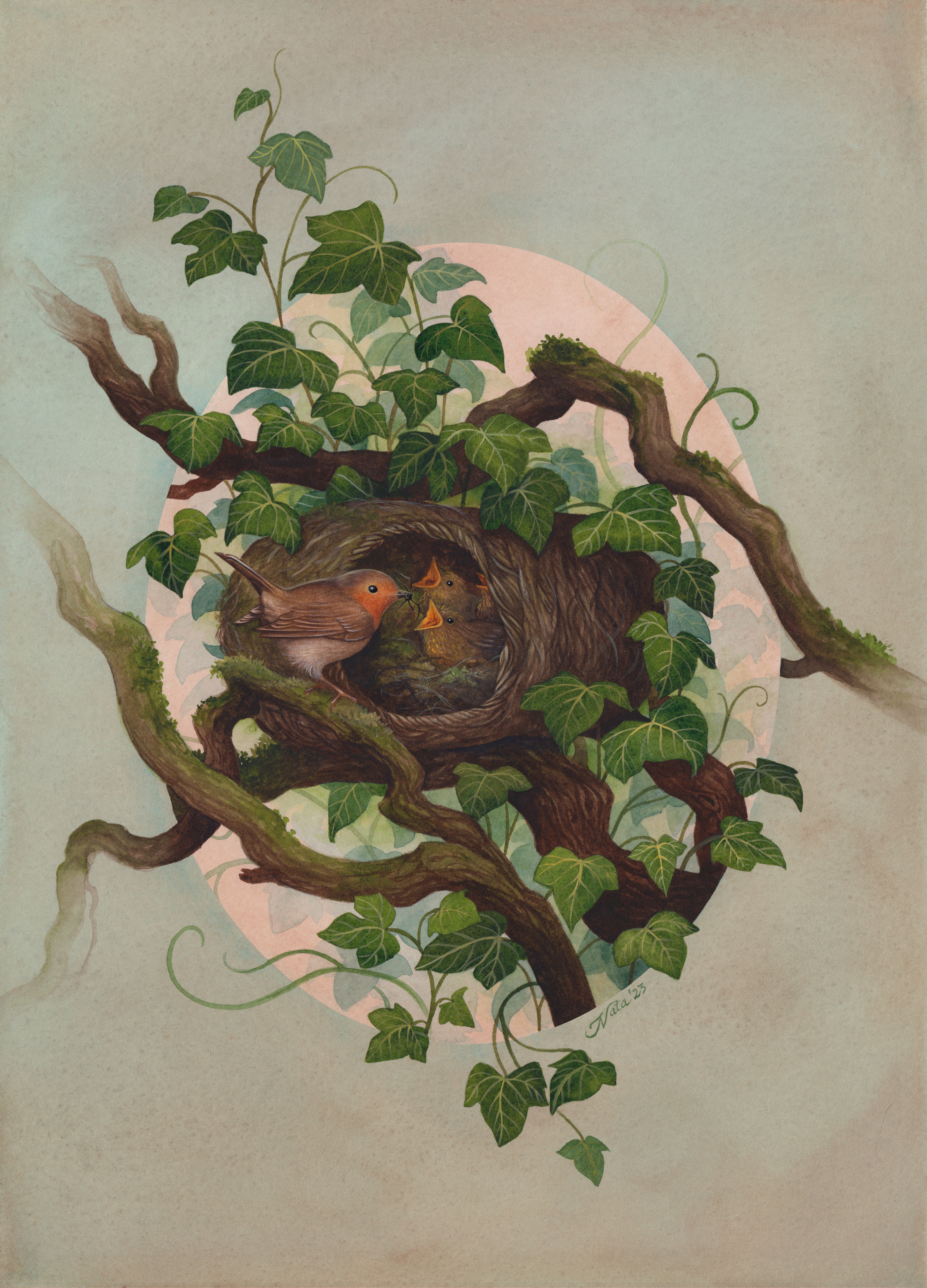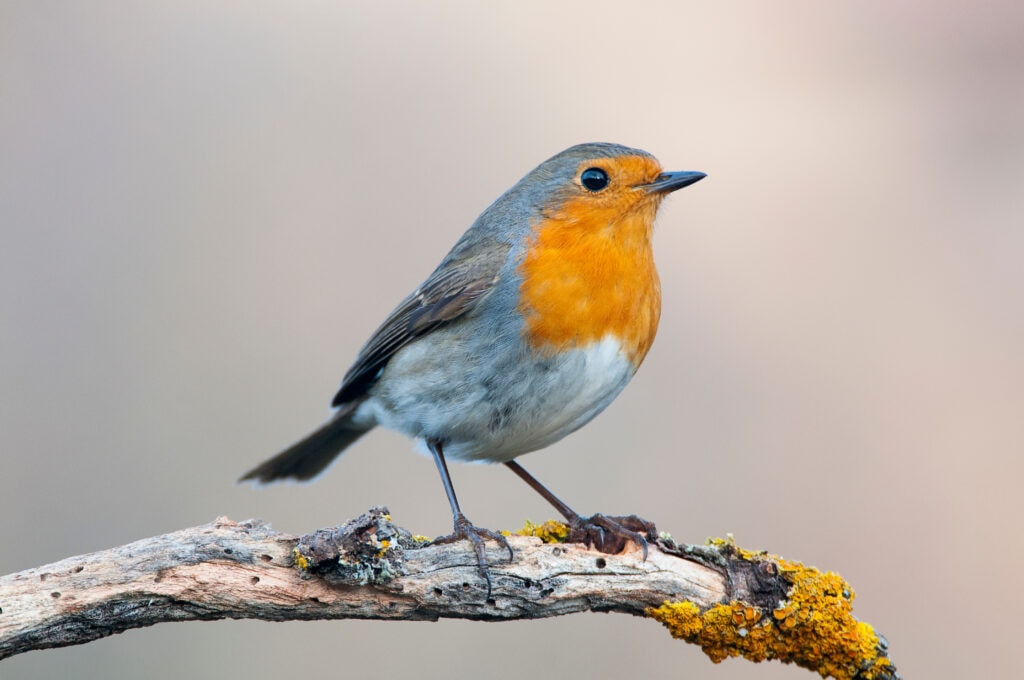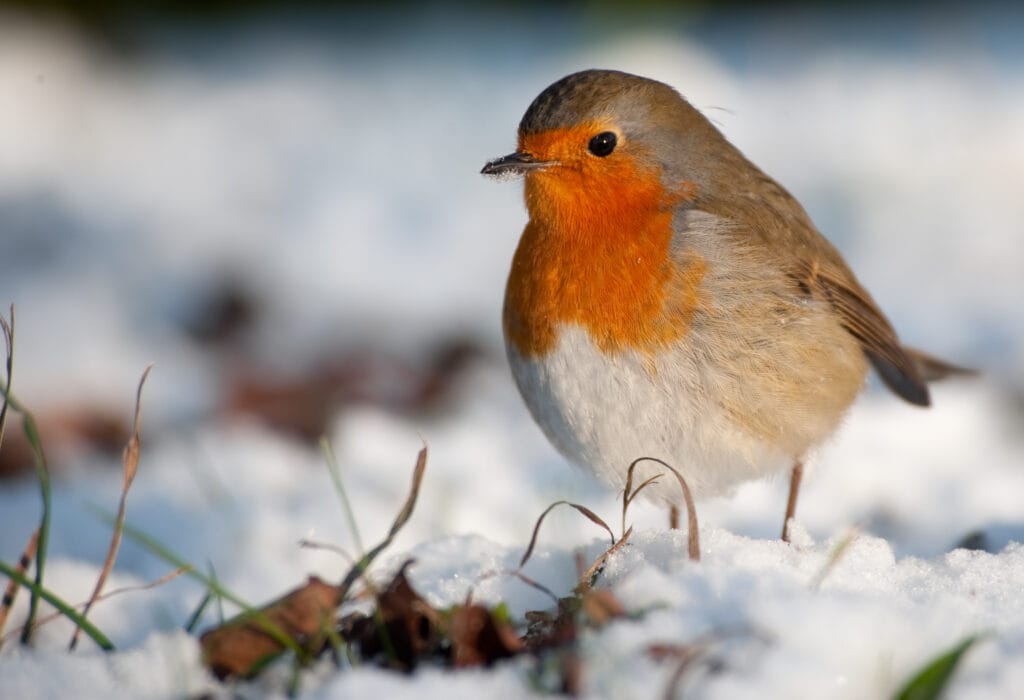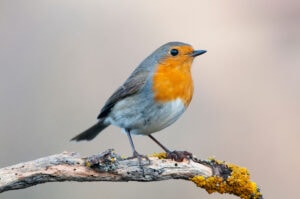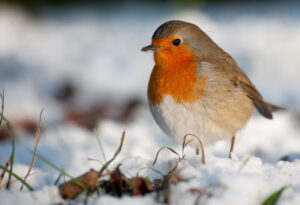Get To Know The Robin
Robins are the UK’s most beloved bird. Their bright red breasts and cheerful songs make them instantly recognizable all year, especially during Christmas! It’s hard to tell males and females apart because they look the same. Young Robins don’t have a red breast; instead, they have golden brown spots. Although they are very cute, they will aggressively defend their territory.
Key Facts
Scientific Name: Erithacus rubecula
Bird Family: Old World flycatchers and chats
Diet: Worms, seeds, fruits, and insects
Population: 7.4 million pairs breeding annually
Measurements: Length: 14 cm/ Wingspan: 20-22 cm/ Weight: 15-22 gm
Conservation Status and Threats
Robins usually only live two years. But they have been known to live up to 8 years in the wild! Severe winter weather is one of the most dangerous threats to Robins.
During an especially long cold spell, you can help Robins by leaving treats on a bird table in your garden. The best treats for Robins include mealworms, meaty kitchen scraps, fat, cheese, cake, biscuit crumbs, and dried fruit.
Nesting and Breeding Habits
Robins usually start to breed in March but might start in January in a mild winter. Robins like to nest on or near the ground. You can provide an open-fronted nest box for robins to use, but they famously use anything and everything to nest — including kettles, boots, and boats!
Robins lay between 4 and 6 eggs that will hatch in about 13-14 days. About two weeks later, the chicks are ready to fly! However, they stay with their parents for about three more weeks. Robins often have two or three broods in the same nesting season.
When and Where to See Them
Robins live all over the UK in woodlands, hedgerows, parks, and even right in your garden. Breeding pairs defend the same territory during summer, whilst individuals hold their own throughout winter.
How You Can Help
You can help the Robin thrive by using recycling programs that decrease pollution and by supporting the RSPB.
Volunteer: RSPB Volunteering Program
Donate: RSPB Donation Page
About The Artist
Nataša Ilinčić is an award-winning artist based in Scotland, and the creator of A Compendium of Witches.
Through her art, she aims to explore the relationship with nature with a new voice, but one that echoes the wisdom of ancient ways. Her work appears in books, magazines, ttrpgs, posters, tarot and oracle decks, and has been exhibited in various galleries, including the London House of Illustration and Somerset House.
Portfolio: www.natasailincic.com
Instagram: @natasailincic
About Our Partner
The RSPB is the UK’s largest nature conservation charity, working locally in the UK, and around the world. Our vision is a shared world where wildlife, wild places, and all people thrive. We act by protecting and restoring habitats, saving species, and helping to end the nature and climate emergency. Nature is in crisis. Together we can save it.
For all licensed Products sold by Historiart, Historiart will donate a minimum of £10,000 per annum to RSPB Sales Ltd, which gives all its distributable profits through Gift Aid to the RSPB.
Manufactured under licence from RSPB Sales Limited to raise awareness of the RSPB (charity registration in England and Wales no 207076 and Scotland no SC037654).
